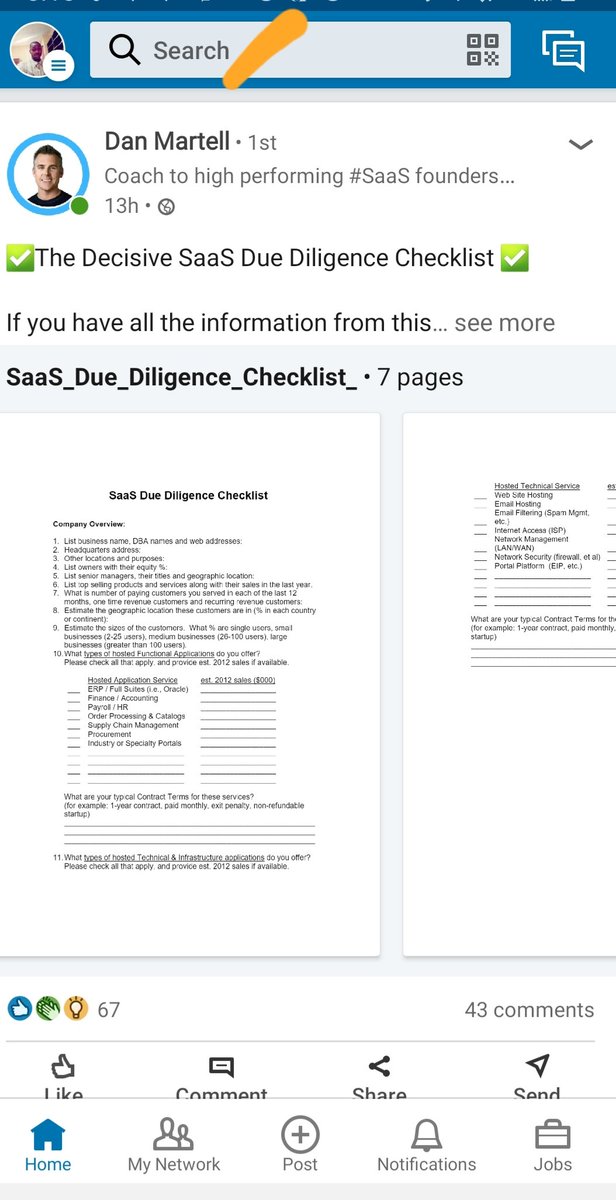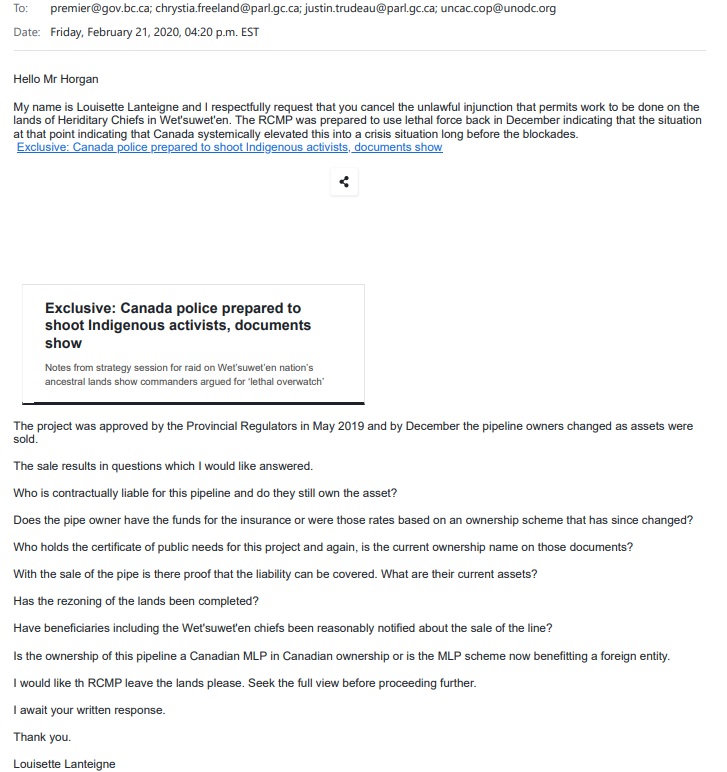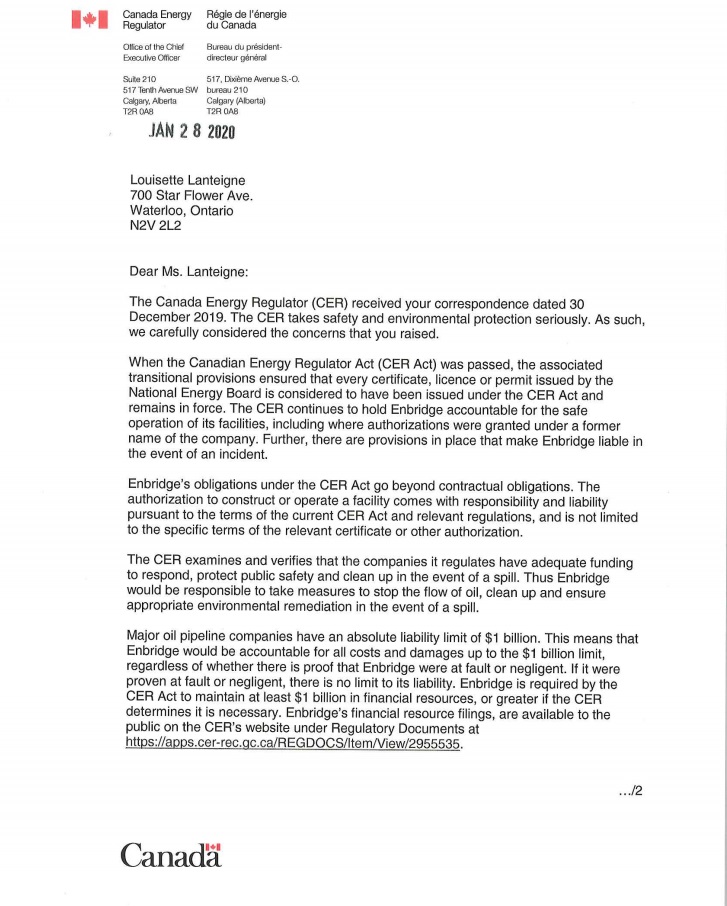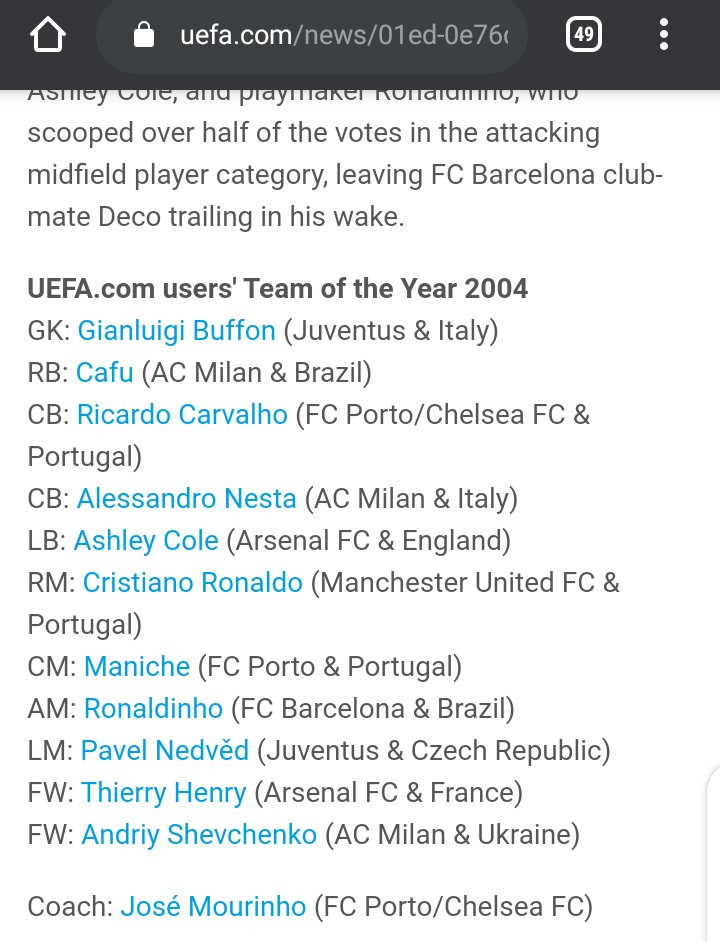Mollyycolllinss's Categories
Mollyycolllinss's Authors
Latest Saves
I won't call this a secret or an expo, it's what you can find by a simple Google search. We will be using LinkedIn to look for business owners, companies and establishments who need
remote workers. Some of these people need immediate hire(s), some need freelancers for a long-term project.
During the Writing Workshop with @ToyosiGodwin, I talked about why you need to have an irrestitible LinkedIn profile. We will be using our LinkedIn profile as a resume
here. When you are applying for most of these jobs, LinkedIn will automatically download your profile, save it as PDF, and send it to the recruiter. So, I assume anyone using this method either has a good LinkedIn profile or professional freelancer resume. Read more about
how to create a professional resume here https://t.co/JYwu93XLYE
With any of these, your dream job is just a click away. I am talking about the kind of job that's soul-soothing, one that can change your life and career.
Ready? Grab your coffee and detach yourself from
unnecessary distractions.
Go to Linkedin, tab the search bar and a space to enter your keywords will appear. Let me show this using my profile.
As a freelance copywriter, let's search for some companies currently looking for freelance copywriters

UN CERD letter to government of #Canada \U0001f1e8\U0001f1e6 re: Secwepemc Wet\u2019suwet\u2019en pipeline resistance and the international #indigenous human rights violations by Canada #shutdowntmx #stopcgl pic.twitter.com/E4LZE8culv
— Kanahus Manuel (@KanahusFreedom) January 12, 2021
53 organizations representing over 2 million people, we call on the Government of Canada to immediately order EDC to align its business with Canada’s climate commitments. Coastal Gaslink Pipeline mentioned.
In Canada the pattern repeated with multiple pipelines. After approvals they flip the ownership of pipes with asset sales to negate contractual obligations re: terms of approval, insurance, liability etc. This happened to TransMountain, Coastal Gas Link, Enbridge Line 10 etc.
My email to the Prime Minister from Feb. 2020. I am still waiting for the answers.

Canada Energy Regulator (CER) is formerly the National Energy Board. I asked for proof of the insurance of Enbridge's pipelines. The CER Chair sent me data based on assets owned in 2016 most of which has been sold off since. The website give in the response held that info.

Here’s a chapter-by-chapter thread on the 20 forecasts by 20 thought leaders on 20 themes that will define India in the 2020s.
1/n
Delighted to announce the forthcoming release of my fifth book \u2014 #India2030: The Rise of a Rajasic Nation.
— Gautam Chikermane (@gchikermane) January 13, 2021
It hits the bookstores on 25 January.
Gratitude to my contributors and @PenguinIndia for partnering this adventure. pic.twitter.com/I0SdQk19JG
Chapter 20 of #India2030 by @davidfrawleyved talks about how the Civilizational Resurgence of India will reconnect its ancient past to ride into a dharmic future
2/n
Chapter 19 of #India2030 by @devdip tells us what the new idea of Nationalism in the 2020s will be — an integral union of the nation with the self
3/n
Chapter 18 of #India2030 by @sandipanthedeb examines how ideologies and technologies will intrude into and redefine Friendships
4/n
Chapter 17 of #India2030 by @authoramish studies the Soft Power of India and says its global influence will be through the confluence of materialism and spiritualism
5/n
This is what happens when you let philosophers try to write about real life. This ridiculous, game-playing, feigned innocence. Journals have been full of this for years, this elaborate performance of *doing philosophy* and saying nothing. I cannot adequately express my contempt pic.twitter.com/ciDeWuEkET
— Jack (@jackeselbst) January 14, 2021
This is a secular problem in the discipline. It's got nothing to do with the Analytic/Continental split in the anglophone world. They've both got the same ramifying signal/noise problem, it's just that the styles (tics and connotations) are different in each pedagogical context.
And this is before we start talking about tone policing and topic policing, which are both rife and essentially make the peer review journal system completely unfit for purpose, populated as it is by a random sampling of pedants selecting for syntactic noise over semantic signal.
We've allowed a system of self-reinforcing and ratcheting filters to evolve that effectively *fuzzes* our contribution to the growth of human knowledge (https://t.co/VmW15pGt7J), because it selects for properties only loosely related to those we claim to want. Let that sink in.
This is literally the opposite of what a filter is supposed to do: extract signal from noise, syntactic compression that preserves semantic content. Instead we are awash in syntactic artifacts optimised for minimal criticisable content and maximal pedantic posturing.
2/ In fact, those of us who use quantitative data overwhelmingly believe that sex is important. It matters across a wide range of domains: education, wages, crime, political attitudes, religion - you name it, sex is almost always a big predictor!
3/ Sex and gender identity are two different things, and gender identity is not a clarly defined concept. Ciaran McFadden Young (who is not a quantitative social scientist as far as I can see) claimed that sex doesn't matter, effectively it is always trumped by gender identity.
4/ This is a remarkable claim, but it is a testable claim, if we collect data on both sex and gender identity. If we can't collect the data, then we will never be able to test this hypothesis. And perhaps that's the point.
5/ Ciaran also claimed that is has been proven that post-transition MtF transwomen earn the same as https://t.co/6luJGGHikU was frustrating not to have a chance to challenge this claim, which I find implausible. I'd be very interested to see the research referred to @dr_ciaran
Disgraceful and shabby if true: not only ideologically blinkered, but ashamed to admit its ideological blinkers and their consequences. https://t.co/7PgOEogTlA
— George Peretz QC (@GeorgePeretzQC) January 9, 2021
The position that we now have now (no relevant provisions under the TCA) is complicated. For EU musicians visiting the UK see
See here a summary of what is permitted from U.K. POV. https://t.co/HkdRlubySr
— Luke Piper (@Pipermigration) January 10, 2021
In essence the UK permits foreign (including EU) nationals to stay up to 30 days to carry out paid engagements, but they must (a) prove they are a professional musician and (b) be invited by an established UK business.
Either condition could be tricky for a young musician starting out and wanting to play gigs. And 30 days isn’t long enough for a part in a show with a run.
Longer stays require a T5 visa - which generally requires you to be in a shortage occupation (play an instrument not played in the UK?) or to have an established international reputation.







































